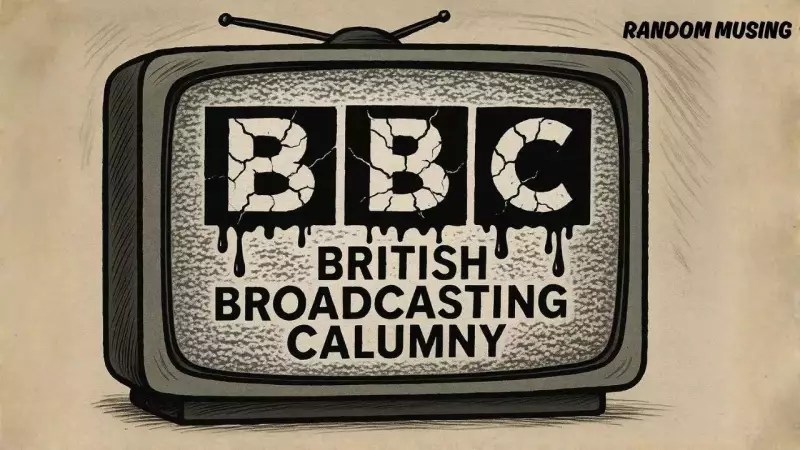
In a dramatic turn of events that echoes the famous Casablanca scene where Captain Renault feigns shock at discovering gambling while pocketing his winnings, the British Broadcasting Corporation finds itself at the center of a massive credibility crisis. The BBC's Director-General Tim Davie and news chief Deborah Turness have resigned following multiple scandals that have shattered the broadcaster's reputation for impartial journalism.
The Scandals That Broke the BBC's Back
The most prominent controversy involved splicing a Donald Trump speech to change the meaning of what the former US President actually said. This manipulation of content sparked widespread outrage and raised serious questions about the broadcaster's editorial integrity.
But the problems ran much deeper than a single edited video. The BBC faced accusations of blatant anti-Israel bias in its coverage, particularly from BBC Arabic, which some critics described as reading like "Hamas fan mail." The organization had employed journalists who appeared almost embedded with the militant group.
Simultaneously, the broadcaster demonstrated a pronounced pro-trans fixation that included censuring a journalist for using the term "pregnant women" instead of "pregnant people." The BBC also removed journalists who questioned the organization's gender-identity coverage and consistently downplayed stories that might make pro-trans groups look bad.
Personnel problems further compounded the crisis, including the hiring of a paedophile news anchor and ongoing controversies surrounding sports presenter Gary Lineker, whose political commentary often overshadowed his professional expertise.
Why Did the BBC Suddenly Fold?
The timing of the resignations raises important questions. Contrary to liberal theories about internal coups or conservative conspiracies, the reality appears more complex and rooted in broader geopolitical and cultural shifts.
Donald Trump's return to the White House created an environment where offending the potential US president became politically risky. With the UK and Europe increasingly dependent on American support, having a state broadcaster anger the man Gen Z might call "glucose guardian" became untenable.
The global political landscape has shifted dramatically rightward, replacing the rules-based liberal international order with spheres of influence where Europe increasingly finds itself marginalized. This rightward lurch occurred ironically after the decline of traditional mass-controlled media, only to be replaced by the algorithmic chaos of social media platforms.
The Deeper Cultural and Financial Crisis
More fundamentally, the age of woke quackery appears to be ending. The pendulum that swung too far toward moral grandstanding and performative empathy is now snapping back with considerable force. The BBC, long considered the cathedral of progressive orthodoxy, is discovering that audiences no longer kneel at its altar.
The broadcaster's financial situation has reached critical levels. License fee cancellations have crossed 300,000 households this year alone, while commercial revenues have stagnated. The once-mighty public broadcaster is now running operating losses in the hundreds of millions, with shrinking newsrooms and waning influence.
Audiences are increasingly turning to YouTube channels and alternative media sources that offer sharper analysis at a fraction of the cost. When the money runs out, as the saying goes, the myth runs out too.
The BBC's crisis reflects a broader British identity crisis—what some call BINO, or "British in name only." The romanticized Britain of literature has given way to a nation where institutions like the monarchy, Parliament, and BBC exist in a state of suspended animation: technically alive but spiritually embalmed.
The fall of the BBC isn't just a media story—it's a national metaphor. For once, the Beeb isn't reporting the decline of British influence. It has become the decline itself.





